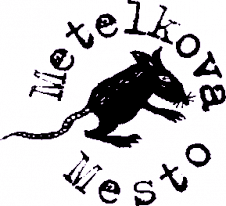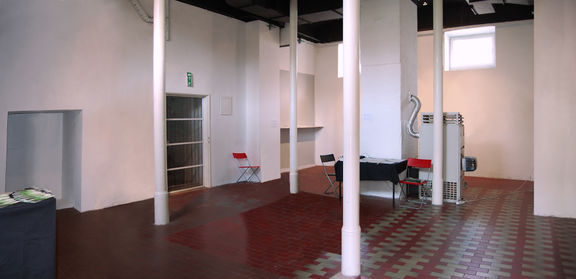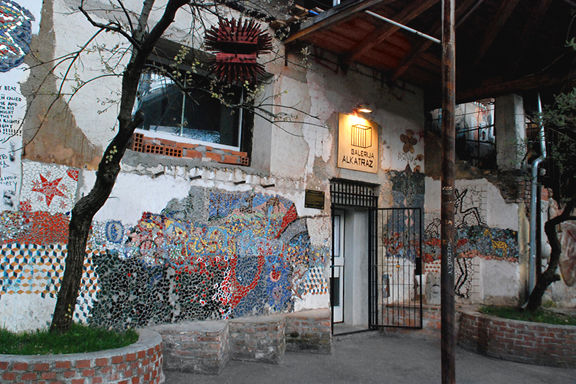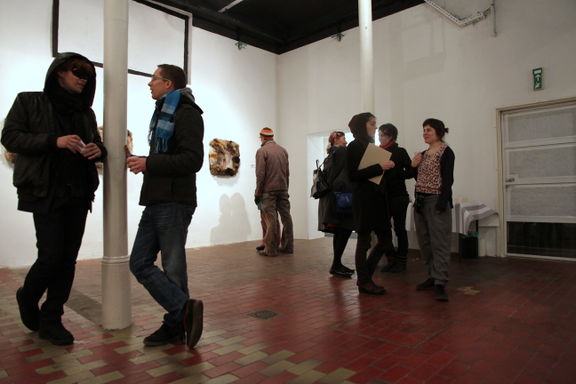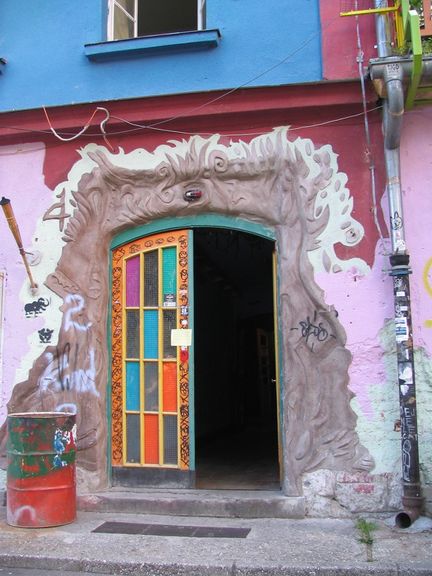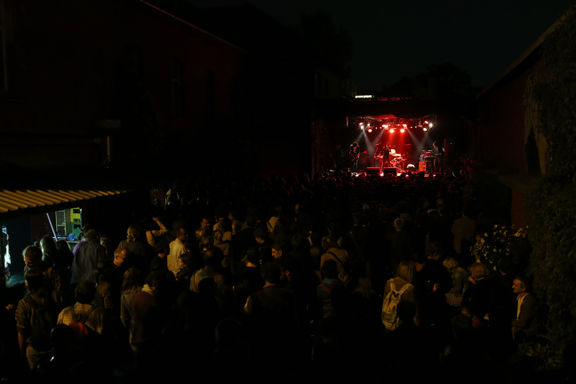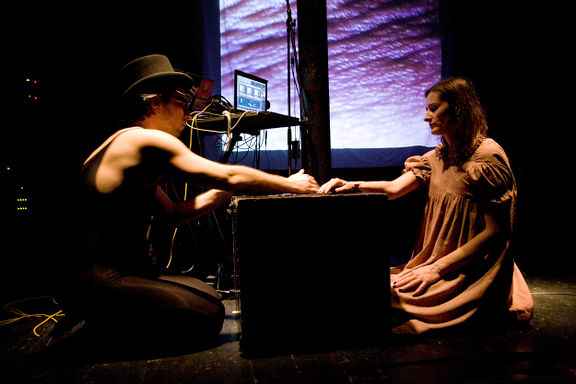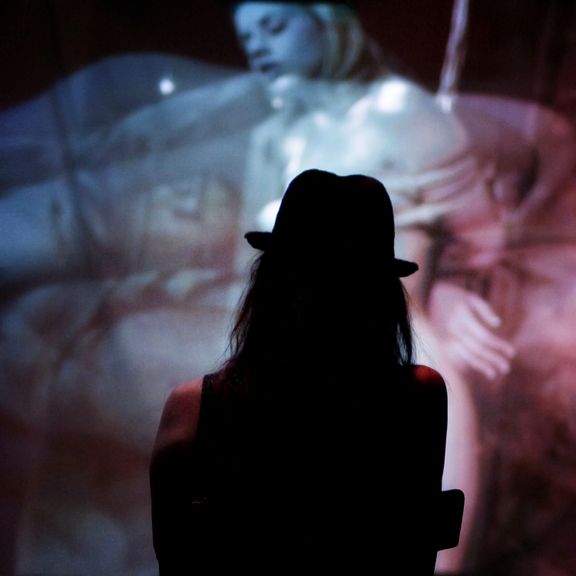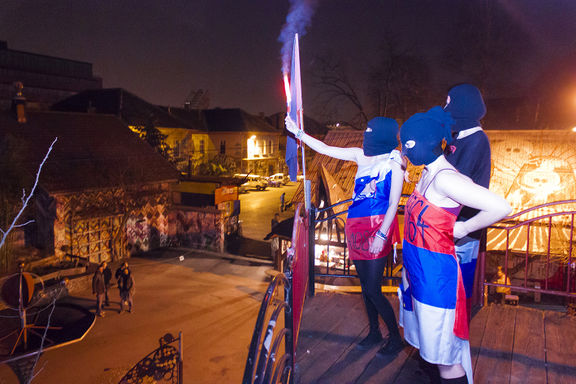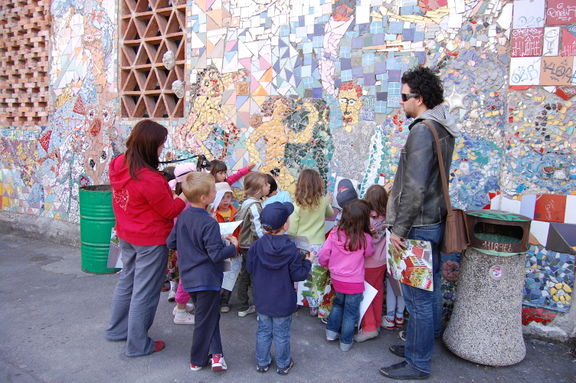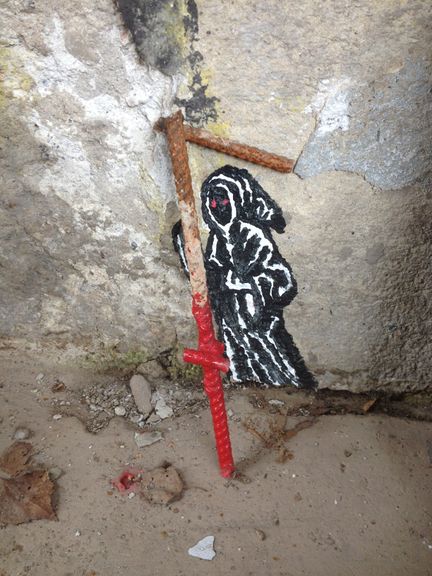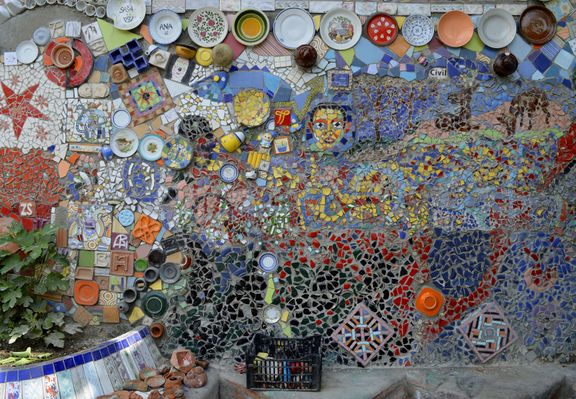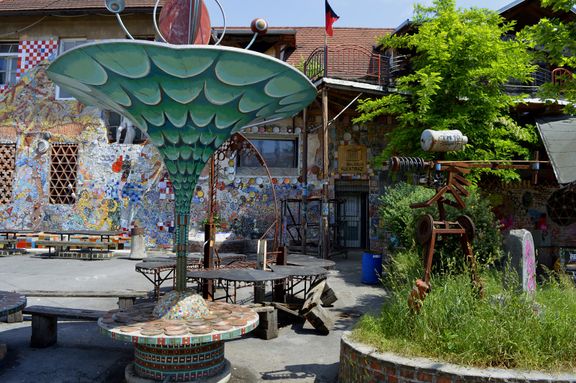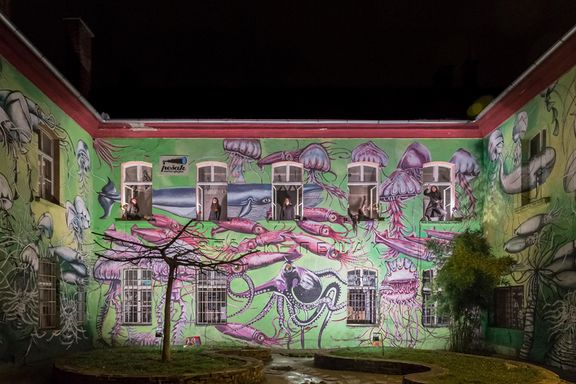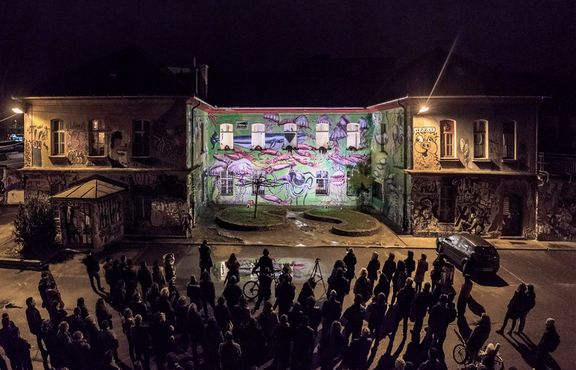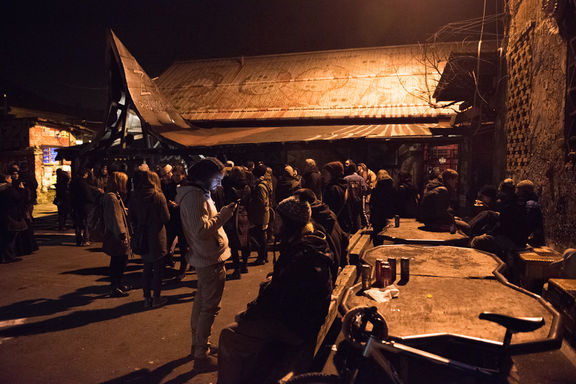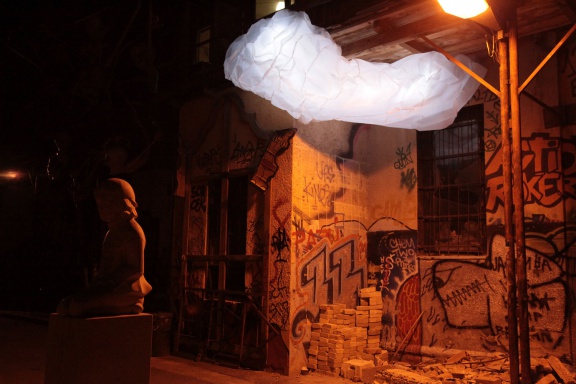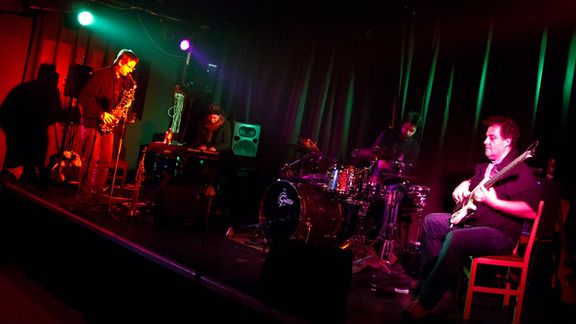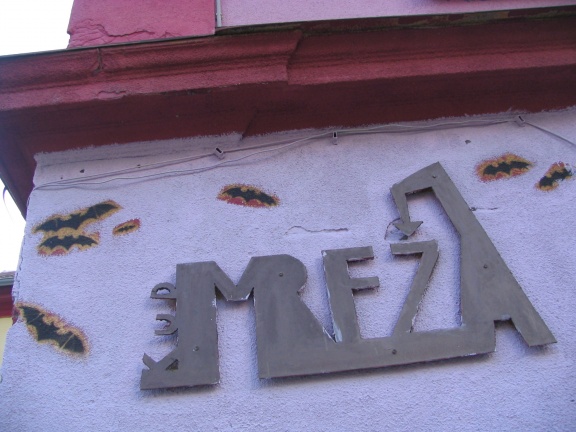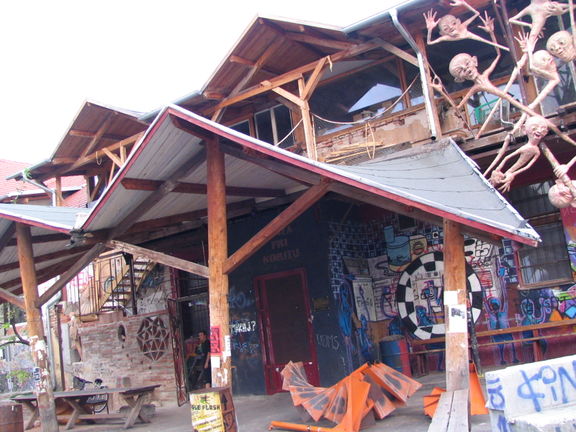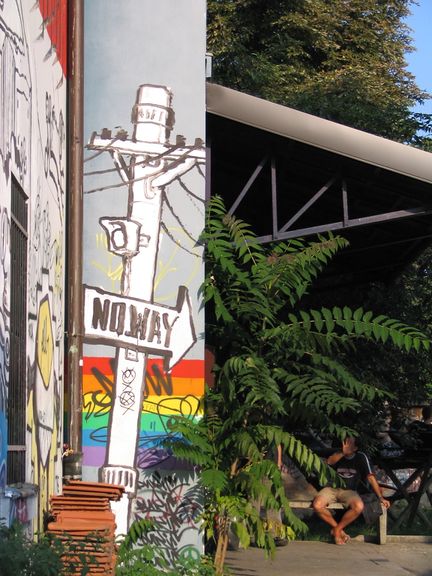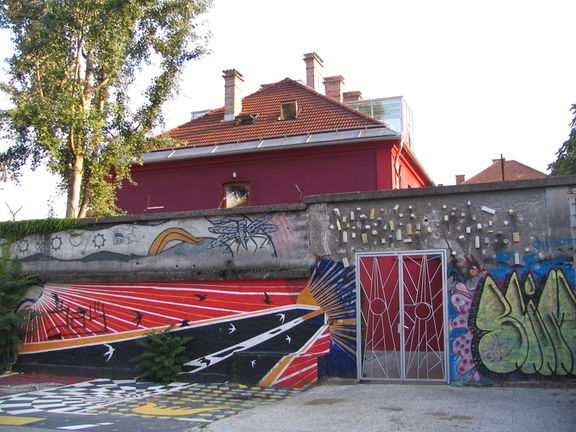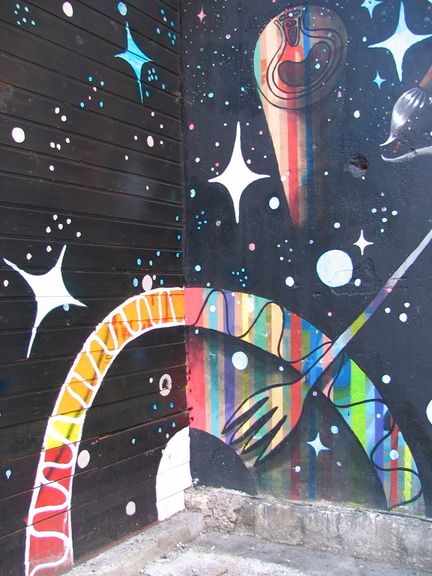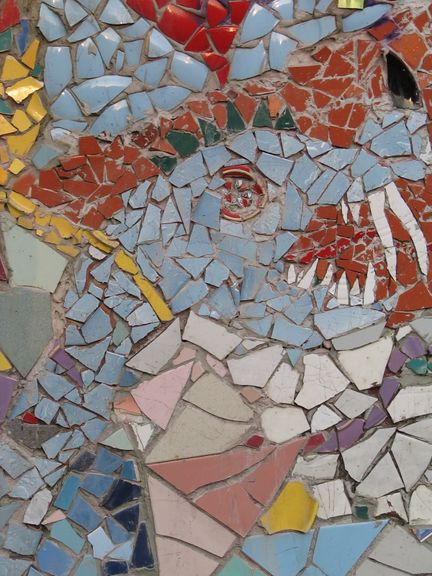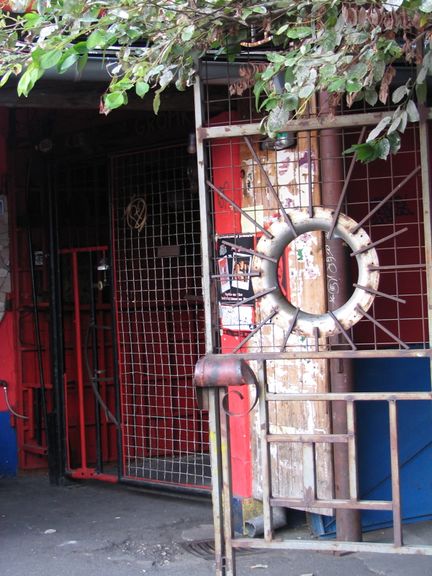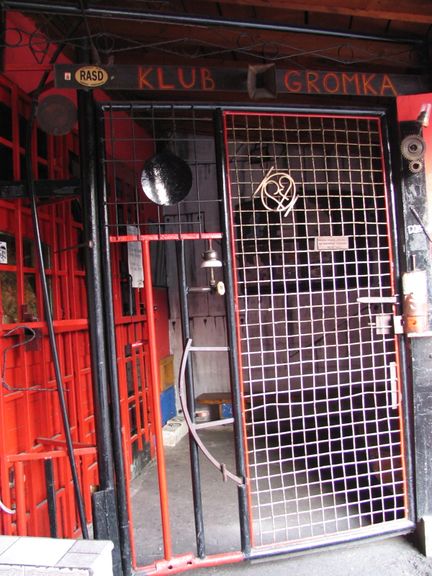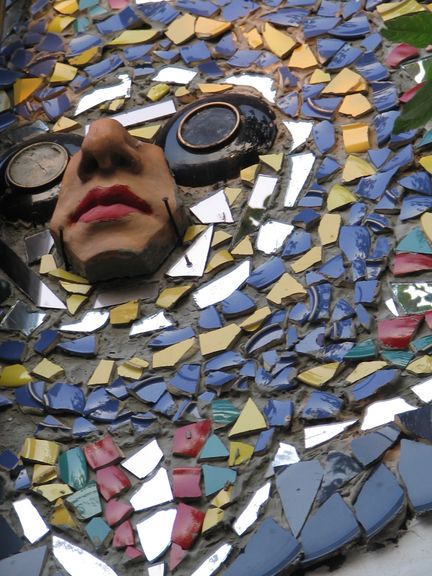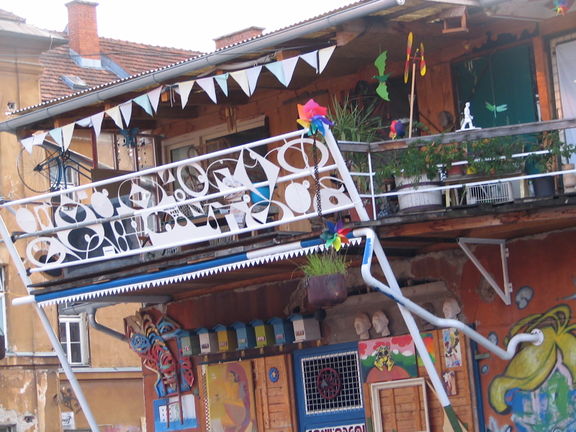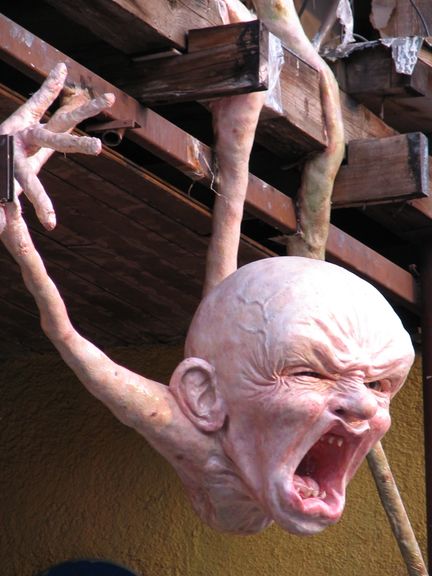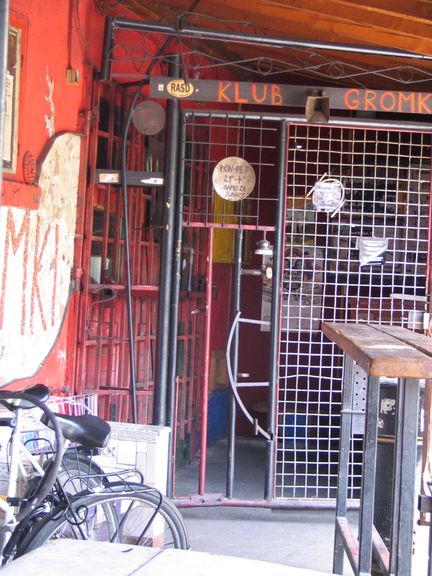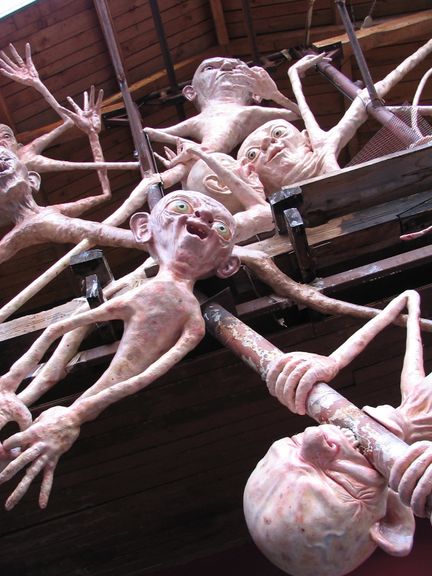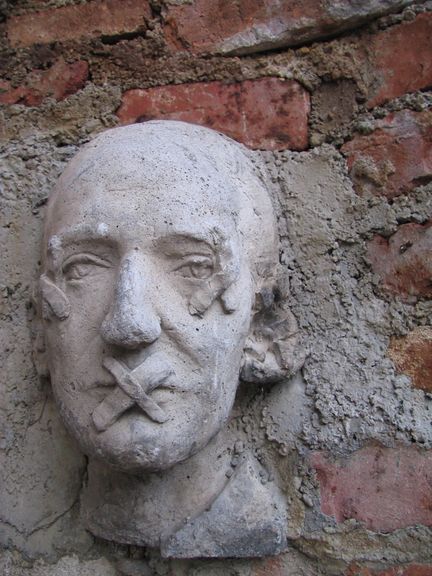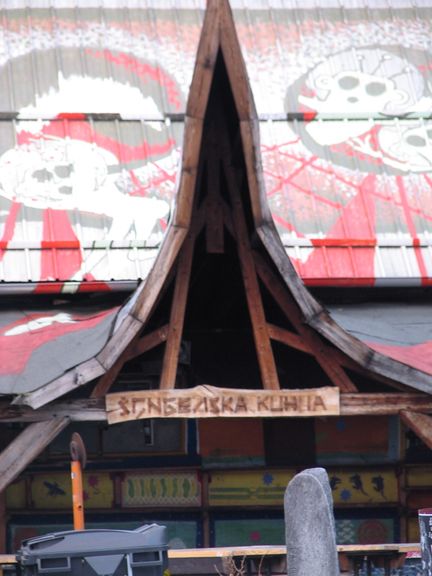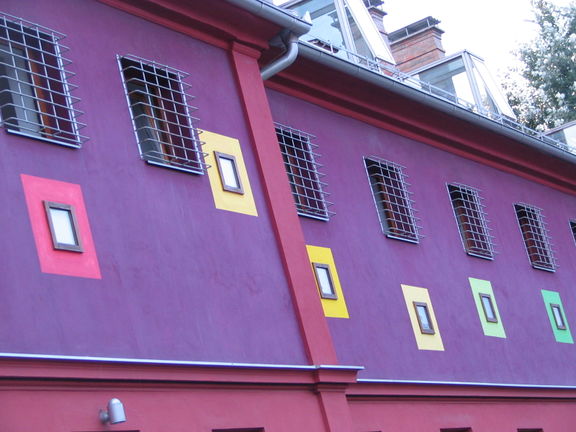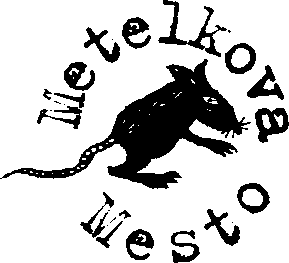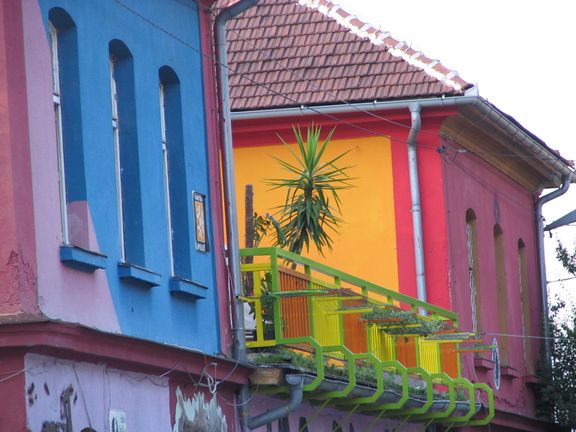Difference between revisions of "Metelkova mesto Autonomous Cultural Zone"
Anže Zorman (talk | contribs) (sloteasers tinkering) |
|||
| (95 intermediate revisions by 13 users not shown) | |||
| Line 1: | Line 1: | ||
| − | + | {{Article | |
| + | | status = NIFERTIK! PHOTO | ||
| + | | maintainer = Anže Zorman | ||
| + | }} | ||
{{Infobox | {{Infobox | ||
| − | | | + | |name = Avtonomni kulturni center Metelkova mesto (AKC Metelkova mesto) |
| − | | | + | |logo = Metelkova mesto.png |
| − | | | + | |street = Metelkova 8 |
| − | | | + | |town = SI-1000 Ljubljana |
| − | | | + | |map = http://www.openstreetmap.org/?lon=14.51672&lat=46.05706&zoom=17&layer=mapnik |
| − | | | + | |email = info@metelkova.org |
| + | |website = http://www.metelkovamesto.org | ||
| + | |telephone = | ||
| + | }} | ||
| + | |||
| + | {{Teaser| | ||
| + | {{Image|Metelkova Foto Hobit 7880.jpg}} | ||
| + | |||
| + | The [[Metelkova mesto Autonomous Cultural Zone|Autonomous Cultural Centre Metelkova mesto]] (''AKC Metelkova mesto'', ''AKC Metelkova'' or just ''Metelkova'' – also ''Meta'', ''Metka'', or ''Metla'' in the local slang) is an umbrella term for one of the liveliest cultural, artistic, social and intellectual urban areas in Ljubljana that stands among the largest agglomerations throughout Europe of alternative and underground cultures. | ||
}} | }} | ||
| + | {{TeaserSlo|AKC Metelkova mesto je krovno ime za eno najbolj živahnih kulturnih, umetniških, družbenih in intelektualnih urbanih območij v Ljubljani - in širše.}} | ||
===History=== | ===History=== | ||
| − | Metelkova mesto occupies the former | + | AKC Metelkova mesto occupies the former "Fourth of July Military Barracks" at Metelkova ulica 3 in the centre of Ljubljana, which was originally commissioned by the Austro-Hungarian army in 1882 and completed in 1911. From the end of WWI until 1941, it was used by the army of the Kingdom of Yugoslavia (previously the Kingdom of Serbs, Croats, and Slovenes); during WWII, it was occupied firstly by the Italian fascist then German Nazi forces; then from 1945 until late June 1991, the area was in the hands of the People's Army of Yugoslavia (JLA). Its neighbouring IXth Army District Headquarters on Metelkova ulica is nowadays known as the "museum district", the legal property of the [[Ministry of Culture]], located nearby. |
| + | |||
| + | In 1990, the Network for Metelkova was formed, consisting of more than 200 partner organisations facilitated by the Movement for the Culture of Peace and Non Violence and the [[ŠKUC Association]], to propose a new, peaceful and creative use for the barracks. In 1991, the Network for Metelkova formally petitioned the newly-independent Slovene government to take possession of the abandoned site. The municipality of Ljubljana gave some promises that the area would be given to the alternative culture, but in reality, nothing happened. | ||
| + | |||
| + | After months of waiting, direct action took place. During the night from 10 to 11 September [[Established::1993]], a group of about 200 alternative producers and activists occupied the former military barracks in order to prevent its illegal destruction and redevelopment, and since 1995, the space has been a self-organised autonomous zone. Although it has not yet succeeded in achieving proper legal status, the area was partly registered as national cultural heritage in 2005. | ||
| + | |||
| + | Projects at Metelkova mesto are often supported by the state and municipal funders as well as by many local and international sponsors, foreign embassies and cultural institutes. In spite of this, Metelkova mesto is still regularly under attack: in 2006, one of the buildings which was considered to have been erected illegally was torn down and various inspections continue to interrupt cultural events. | ||
| + | |||
| + | ==Venues, organisations== | ||
| − | + | Many cultural organisations are based at Metelkova, with some of them there since the start and others of a more transient nature. They include: [[KUD Mreža Arts and Culture Association]], currently running the [[Alkatraz Gallery]], the [[Asylum Studio]], the [[Night Window Display Gallery Pešak]] and its [[International Feminist and Queer Festival Red Dawns]]; [[KAPA Association for Cultural and Artistic Production]] with its [[Gala hala]] venue for all genres of rock, dub, hip-hop, and so on; [[KUD Anarhiv]] with its ''Škratova čitalnica''; [[Celica Hostel]], with its cafe-bar, concert and gallery space (run by [[KUD Sestava]]), constructed within the old military prison; and [[Infoshop Metelkova|Infoshop]], a social space for research and development in the theory and practice of anarchistic and related movements. | |
| − | + | Venues also include [[Klub Menza pri koritu]], with a programme spanning from poetry readings to rock gigs, [[Klub Channel Zero]] for electronic music, dub, and variety of rock and hard core events, [[Klub Gromka]] for alternative performing arts events, films, various concerts, literature, and lectures, the gay club [[Klub Tiffany]] and the lesbian club [[Klub Monokel]], as well as [[Klub SOT 24,5]], run by the YHD – Association for Theory and Culture of Handicap. There are also [[Mizzart Gallery]] with its psy trance fiestas, and – as the only spontaneously-erected building – [[Jalla Jalla]] artistic inn. Several artists' studios – some of which are also available for visiting artists – are located in one or the other of barracks. The outdoor events are usually held at the "Square with no Historic Memory". Open only throughout the summer, the garden of Gala hala offers a special summer programme in an extremely nice courtyard that can host up to 800 people. | |
| − | + | The building at Metelkova 6 accommodates the offices of many Ljubljana NGO cultural organisations, including [[SCCA-Ljubljana Centre for Contemporary Arts]], the [[Peace Institute - Institute for Contemporary Social and Political Studies|Peace Institute]], [[Maska Institute]], [[Forum Ljubljana]], [[City of Women]], [[Ekran, Magazine for Film and Television|Ekran]] magazine and [[Strip Core]], as well as numerous other cultural, research and civil society organisations. | |
| − | + | Metelkova is nowadays organised non-hierarchically, with its Forum (of all participants) making decisions using consensus and direct democratic principles. | |
| − | + | ==Programme== | |
| − | + | {{Wide image|Avtonomna kulturna cona Metelkova mesto (AKC Metelkova mesto).jpg}} | |
| − | Metelkova mesto is the | + | Metelkova mesto is one of the two locations in the city (the other being a newer squat called [[Tovarna Rog]]), and one of the few in the country, where youth, underground and alternative cultural expression is systematically produced and presented to a large and active audience. It is also a forum of impressive intellectual irradiation. Up until recently, the [[Klub Gromka]] annually hosted the programme of the [[Workers' Punk University]] (now the [[Institute for Labour Studies]]) where the most urgent and actual dilemmas of the contemporary world were discussed by competent international speakers. The annual celebration of the AKC Metelkova's perseverance takes place each September in the form of a festival. |
| − | + | ==Projects== | |
| − | Producers from Metelkova have participated in numerous important cultural festivals including the Wiener Festwochen, documenta, | + | Producers from Metelkova have participated in numerous important cultural festivals including the Wiener Festwochen, documenta, Manifesta, the Sao Paolo Biennial and the Venice Biennale. Many Slovene international festivals held in Ljubljana hold part of their activities at Metelkova, including the [[City of Women International Festival of Contemporary Arts]], [[Druga Godba Festival]], [[MENT Ljubljana]], [[Ljubljana Jazz Festival]] and the [[Ana Desetnica International Street Theatre Festival|Ana Desetnica]]. |
| − | + | Media-wise, [[Radio Študent (RŠ)]] is with no doubt Metelkova's strongest comrade-in-arms, and it also organises its [[Radio Študent Benefit Festival]] at one of Metelkova's venues. | |
| − | + | ==International cooperation== | |
| − | + | The major reconstruction works were executed in 2001 and 2004 in collaboration with the ''Axt und Kelle'' collective of travelling young craftsmen and craftswomen from Germany, Denmark and Switzerland. Metelkova mesto used to be a member of Trans Europe Halles and in 2006 it hosted the annual meeting of its members. | |
| − | ''' | + | Metelkova has been presented as an outstanding phenomenon by the international media, including ''ARD'', Arte, BBC, ''Die Zeit'', ''Falter'', ''Feral Tribune'', ''Los Angeles Times'', ORF, Russian State TV, ''Seattle Times'', ''NY Times'', ''The Guardian'' and ''ZDF''. |
| − | |||
| − | |||
| − | |||
| − | + | ==See also== | |
| − | |||
| − | |||
| − | + | ===Venues=== | |
| − | |||
| − | |||
| − | |||
* [[Gala hala]] | * [[Gala hala]] | ||
* [[Klub Channel Zero]] | * [[Klub Channel Zero]] | ||
| Line 60: | Line 72: | ||
* [[Alkatraz Gallery]] | * [[Alkatraz Gallery]] | ||
* [[Celica Hostel]] | * [[Celica Hostel]] | ||
| + | * [[Asylum Studio]] | ||
| + | * [[Night Window Display Gallery Pešak]] | ||
| + | * [[Jalla Jalla]] | ||
| + | |||
| + | ===Managing organisations=== | ||
| + | |||
| + | * [[KUD Mreža Arts and Culture Association]] | ||
| + | * [[DRPPD - Association for Development of Preventative and Volunteer Work]] | ||
| + | * [[KAPA Association for Cultural and Artistic Production]] | ||
| + | * [[KUD Sestava]] | ||
| + | * [[KUD Anarhiv]] | ||
| + | |||
| + | ===Festivals and programmes=== | ||
| + | |||
| + | * [[International Feminist and Queer Festival Red Dawns]] | ||
| + | * [[DokuBazaar, Ljubljana Independent Documentary Film Festival]] | ||
| + | * [[Ljubljana International Short Film Festival]] | ||
| + | * [[Radio Študent Benefit Festival]] | ||
| + | * [[Stiropor Festival]] | ||
| + | * [[Young Rhymes]] (a poetry reading series and festival) | ||
| + | * [[Defonija]] (a music cycle for adventurous and improvised music) | ||
| + | |||
| + | ===Information offices=== | ||
| + | |||
| + | * [[KUD Anarhiv]] | ||
| + | * [[Infoshop Metelkova]] | ||
| + | |||
| + | ==External links== | ||
| + | |||
| + | * [http://www.metelkovamesto.org/?lang=txt_eng& Metelkova mesto website] | ||
| + | * [http://www.theguardian.com/cities/2015/jul/24/metelkova-ljubljana-abandoned-barracks-europe-squat "How an abandoned barracks in Ljubljana became Europe's most successful urban squat"] – An article in ''The Guardian'', 24 July 2015 | ||
| − | |||
| − | + | {{Gallery}} | |
| − | |||
[[Category:Venues]] | [[Category:Venues]] | ||
[[Category:Cultural centres]] | [[Category:Cultural centres]] | ||
| − | [[Category: | + | [[Category:Studios]] |
| − | [[Category: | + | [[Category:Residencies]] |
| − | [[Category: | + | [[Category:Music venues]] |
| − | [[Category: | + | [[Category:Theatre venues]] |
| − | [[Category: | + | [[Category:Dance venues]] |
| − | [[Category: | + | [[Category:Visual arts venues]] |
| − | [[Category: | + | [[Category:Visual arts studios]] |
| + | [[Category:Visual arts residencies]] | ||
| + | [[Category:Literature venues]] | ||
| + | [[Category:Film venues]] | ||
| + | [[Category:New media art venues]] | ||
| + | [[Category:Visual_arts_studios,_workshops_and_residencies]] | ||
Latest revision as of 17:29, 19 March 2021
History
AKC Metelkova mesto occupies the former "Fourth of July Military Barracks" at Metelkova ulica 3 in the centre of Ljubljana, which was originally commissioned by the Austro-Hungarian army in 1882 and completed in 1911. From the end of WWI until 1941, it was used by the army of the Kingdom of Yugoslavia (previously the Kingdom of Serbs, Croats, and Slovenes); during WWII, it was occupied firstly by the Italian fascist then German Nazi forces; then from 1945 until late June 1991, the area was in the hands of the People's Army of Yugoslavia (JLA). Its neighbouring IXth Army District Headquarters on Metelkova ulica is nowadays known as the "museum district", the legal property of the Ministry of Culture, located nearby.
In 1990, the Network for Metelkova was formed, consisting of more than 200 partner organisations facilitated by the Movement for the Culture of Peace and Non Violence and the ŠKUC Association, to propose a new, peaceful and creative use for the barracks. In 1991, the Network for Metelkova formally petitioned the newly-independent Slovene government to take possession of the abandoned site. The municipality of Ljubljana gave some promises that the area would be given to the alternative culture, but in reality, nothing happened.
After months of waiting, direct action took place. During the night from 10 to 11 September 1993, a group of about 200 alternative producers and activists occupied the former military barracks in order to prevent its illegal destruction and redevelopment, and since 1995, the space has been a self-organised autonomous zone. Although it has not yet succeeded in achieving proper legal status, the area was partly registered as national cultural heritage in 2005.
Projects at Metelkova mesto are often supported by the state and municipal funders as well as by many local and international sponsors, foreign embassies and cultural institutes. In spite of this, Metelkova mesto is still regularly under attack: in 2006, one of the buildings which was considered to have been erected illegally was torn down and various inspections continue to interrupt cultural events.
Venues, organisations
Many cultural organisations are based at Metelkova, with some of them there since the start and others of a more transient nature. They include: KUD Mreža Arts and Culture Association, currently running the Alkatraz Gallery, the Asylum Studio, the Night Window Display Gallery Pešak and its International Feminist and Queer Festival Red Dawns; KAPA Association for Cultural and Artistic Production with its Gala hala venue for all genres of rock, dub, hip-hop, and so on; KUD Anarhiv with its Škratova čitalnica; Celica Hostel, with its cafe-bar, concert and gallery space (run by KUD Sestava), constructed within the old military prison; and Infoshop, a social space for research and development in the theory and practice of anarchistic and related movements.
Venues also include Klub Menza pri koritu, with a programme spanning from poetry readings to rock gigs, Klub Channel Zero for electronic music, dub, and variety of rock and hard core events, Klub Gromka for alternative performing arts events, films, various concerts, literature, and lectures, the gay club Klub Tiffany and the lesbian club Klub Monokel, as well as Klub SOT 24,5, run by the YHD – Association for Theory and Culture of Handicap. There are also Mizzart Gallery with its psy trance fiestas, and – as the only spontaneously-erected building – Jalla Jalla artistic inn. Several artists' studios – some of which are also available for visiting artists – are located in one or the other of barracks. The outdoor events are usually held at the "Square with no Historic Memory". Open only throughout the summer, the garden of Gala hala offers a special summer programme in an extremely nice courtyard that can host up to 800 people.
The building at Metelkova 6 accommodates the offices of many Ljubljana NGO cultural organisations, including SCCA-Ljubljana Centre for Contemporary Arts, the Peace Institute, Maska Institute, Forum Ljubljana, City of Women, Ekran magazine and Strip Core, as well as numerous other cultural, research and civil society organisations.
Metelkova is nowadays organised non-hierarchically, with its Forum (of all participants) making decisions using consensus and direct democratic principles.
Programme
Metelkova mesto is one of the two locations in the city (the other being a newer squat called Tovarna Rog), and one of the few in the country, where youth, underground and alternative cultural expression is systematically produced and presented to a large and active audience. It is also a forum of impressive intellectual irradiation. Up until recently, the Klub Gromka annually hosted the programme of the Workers' Punk University (now the Institute for Labour Studies) where the most urgent and actual dilemmas of the contemporary world were discussed by competent international speakers. The annual celebration of the AKC Metelkova's perseverance takes place each September in the form of a festival.
Projects
Producers from Metelkova have participated in numerous important cultural festivals including the Wiener Festwochen, documenta, Manifesta, the Sao Paolo Biennial and the Venice Biennale. Many Slovene international festivals held in Ljubljana hold part of their activities at Metelkova, including the City of Women International Festival of Contemporary Arts, Druga Godba Festival, MENT Ljubljana, Ljubljana Jazz Festival and the Ana Desetnica.
Media-wise, Radio Študent (RŠ) is with no doubt Metelkova's strongest comrade-in-arms, and it also organises its Radio Študent Benefit Festival at one of Metelkova's venues.
International cooperation
The major reconstruction works were executed in 2001 and 2004 in collaboration with the Axt und Kelle collective of travelling young craftsmen and craftswomen from Germany, Denmark and Switzerland. Metelkova mesto used to be a member of Trans Europe Halles and in 2006 it hosted the annual meeting of its members.
Metelkova has been presented as an outstanding phenomenon by the international media, including ARD, Arte, BBC, Die Zeit, Falter, Feral Tribune, Los Angeles Times, ORF, Russian State TV, Seattle Times, NY Times, The Guardian and ZDF.
See also
Venues
- Gala hala
- Klub Channel Zero
- Klub Gromka
- Klub Menza pri koritu
- Klub Monokel
- Klub Tiffany
- Alkatraz Gallery
- Celica Hostel
- Asylum Studio
- Night Window Display Gallery Pešak
- Jalla Jalla
Managing organisations
- KUD Mreža Arts and Culture Association
- DRPPD - Association for Development of Preventative and Volunteer Work
- KAPA Association for Cultural and Artistic Production
- KUD Sestava
- KUD Anarhiv
Festivals and programmes
- International Feminist and Queer Festival Red Dawns
- DokuBazaar, Ljubljana Independent Documentary Film Festival
- Ljubljana International Short Film Festival
- Radio Študent Benefit Festival
- Stiropor Festival
- Young Rhymes (a poetry reading series and festival)
- Defonija (a music cycle for adventurous and improvised music)
Information offices
External links
- Metelkova mesto website
- "How an abandoned barracks in Ljubljana became Europe's most successful urban squat" – An article in The Guardian, 24 July 2015



